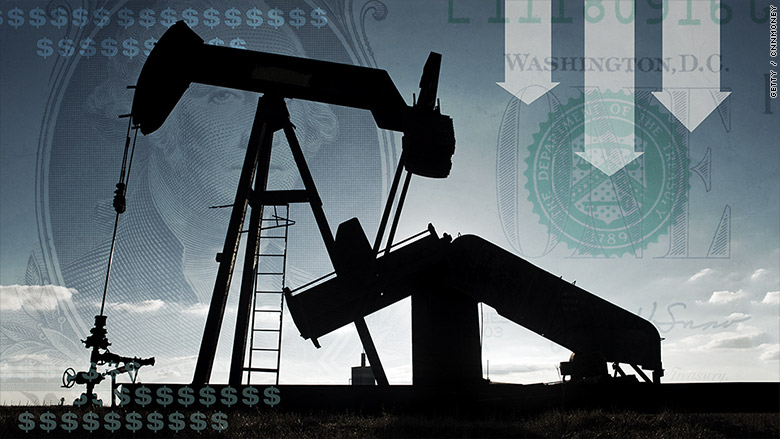
Get used to low oil prices. They're here to stay, and may have to fall even further to take out excess supplies.
The slump in prices was the global economic story of 2015. They've fallen another 20% already this year to around $30 a barrel - a level not seen for about 12 years. This is having a colossal impact as importers reap the benefits, while dwindling revenues put intense pressure on producers.
Oil is a volatile commodity and we've been here before. So why is the price collapse different this time?
Despite the security challenges facing the Middle East, prices are sinking by the day. Since the 1970s, the boom and bust cycle in the oil industry has been highly sensitive to supply disruptions, changes in OPEC production quotas or the mere hint of war. But these spikes detract from the long view.
As former Saudi oil minister Ahmed Zaki Yamani once said: "Political dynamics may have a short term impact on oil markets, but over the long term, prices will reflect supply and demand as the market is demand driven." He was right.
10 million barrels per day
Today prices are being driven by fierce competition between OPEC and non-OPEC producers over market share. Leading producers have added around 10 million barrels in less than five years. The world is awash with oil.
Four years of high oil prices encouraged producers to invest in advanced technologies, reducing the cost of oil and gas production. This encouraged national and international oil companies to produce more than the market could absorb, creating a paradigm shift in market fundamentals.
Since 2010, the United States has added more than five million barrels of new shale oil to daily production. Others having been ratcheting up output too: Russia added nearly one million barrels, while Iraqi production grew by two million barrels to surpass 4.4 million for the first time.
Related: War of words breaks out among OPEC members
Last but not least, Saudi Arabia added around two million barrels, lifting daily production to 10.5 million barrels, a new reality that risks dividing OPEC. It's part of Riyadh's "pump 'n' dump" approach, a strategy that could see the Saudis unleash another two million barrels of spare capacity.
U.S. producers more resilient than expected
U.S. producers have so far weathered the storm better than many expected. The Energy Information Agency suggests that U.S. shale oil production may fall by 570,000 barrels a day during 2016 as a result of the price collapse.
Related: Oil crash delays projects worth nearly $400 billion
But that won't be enough to get prices moving up above $60 a barrel. For that to happen the world needs to lose at least 4% of current production -- or 3.8 million barrels per day.
That's because there's plenty more coming down the pipe: Assuming sanctions are lifted soon, Iran could add one million barrels a day over the next 18 months.
Iraq wants to sustain current production levels this year, but is aiming to hit seven million barrels by 2020.
Paying the price
In the meantime, oil dependent states will have to embrace austerity measures. And OPEC may have to accept an even smaller share of the spoils.
If anything, the battle for customers is getting tougher: Congress has agreed to lift a ban on U.S. crude oil exports that was introduced 40 years ago to secure domestic supply. Since then, OPEC's share of the market has halved to 33% from 65%.
Low oil prices are already forcing Middle East producers to burn through their currency reserves. Inflation is on the rise and taxes are a new reality. Phasing out subsidies will have to continue, despite the political pain that entails.
These states need to spend vast sums to invest in education and initiatives to boost growth. Failure to reform has already rocked the streets of Caracas and Baghdad. Riyadh, and perhaps even Moscow or Tehran could be next. That might please some who relish the prospect of instability in those countries, but policy makers should be wary: a low price could yet come at a very high cost.
Luay Al-Khatteeb is the founder and director of the Iraq Energy Institute and a senior advisor to the federal parliament of Iraq for energy policy and economic reform. The opinions expressed in this commentary are solely those of the author.


